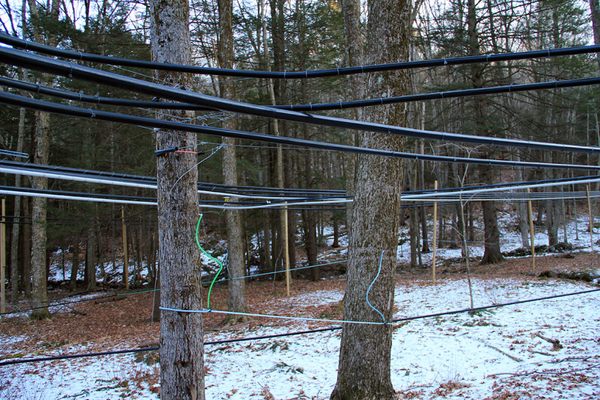You would never guess that just outside quaint Dover Plains, New York lies an isolated makeshift village about which little is known aside from some derisive rumors. Oniontown remains a mystery—which is probably what its residents would prefer.
The name may have came from the onion fields surrounding the little town; 19th century tenant farmers made their meager living working in these fields. It also might be a derivative of “Youngintown,” a name deriding the number of children born to poor families in the mountainside settlement. It also might just be a plain old insult, equating the residents’ smell and appeal to that of an onion. Whatever its origins, Oniontown’s name, much like the rest of the village, is both cemented in tradition and shrouded in mystery.
The derision for its settlers is almost as old as Oniontown itself. The community, which has historically been made up of poor whites, is incorporated into Dutchess County. Oniontown children in Dover Plains public schools have always been bullied for their origins, often leading to fights and even incarceration. In the 1940s an International News Service reporter wrote a series of articles on the “Hillbillies of Colony, Century Behind Times.” At that point Oniontown still did not have electricity. Today, most of its residents work menial labor or farm, based on the many pigs and chickens seen along Onion Road. They still live in extreme isolation though—the post office doesn’t cross the train tracks to deliver to Oniontown, and because garbage removal services aren’t offered to the community, trash is either burned or strewn across the woods.
Oniontown gained national attention when a group of teenagers filmed their foray into the town. Ignoring the signs reading “KEEP OUT” and “NO TRESPASSING,” they drove up the unpaved road through a series of broken-down trailers and ramshackle sheds. They gawked at people on their porches and mocked the impoverished rural atmosphere, all while dramatically predicting their own deaths at the hands of “inbred hillbillies.” The video went viral and prompted more local teenagers to film themselves trespassing in Oniontown.
Some of the copycats didn’t leave unscathed. Oniontown residents launched retaliatory attacks on the intruders, beating them up and smashing their car windows. Sometimes they were even shot at. The violence escalated to the point that Dutchess County police requested that Google remove several of the videos and set up a roadblock near the entrance to Onion Road.
Following these incidents Oniontown’s reputation, which had previously only been Hudson Valley lore, spread around the world: Oniontowners were inbred; police wouldn’t go to Oniontown; everyone there was a drug dealer. VICE wrote an expose. National Geographic produced a series called American Fringe, one episode of which probed into the lives of Oniontowners (with some dramatic reenactment). Though many of these articles and videos attempted to dispel myths about the settlement, they introduced Oniontown as a community outside the law where the inhabitants were “a different kind of human.” It’s often left unclear whether that is meant literally or figuratively.
In reality, Oniontown is just an isolated, impoverished community that has been intruded upon too many times, only causing it to retreat further. The intimidation factor of the mythos surrounding them, however negative, works to their advantage in this regard. Despite much conjecture about little village on the internet, Oniontowners have mostly remained silent. It seems they do truly just want to be left alone.
















Follow us on Twitter to get the latest on the world's hidden wonders.
Like us on Facebook to get the latest on the world's hidden wonders.
Follow us on Twitter Like us on Facebook